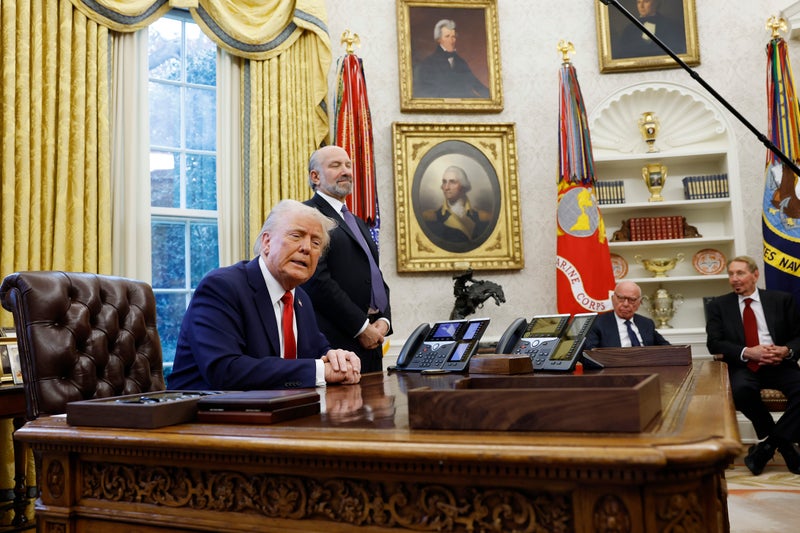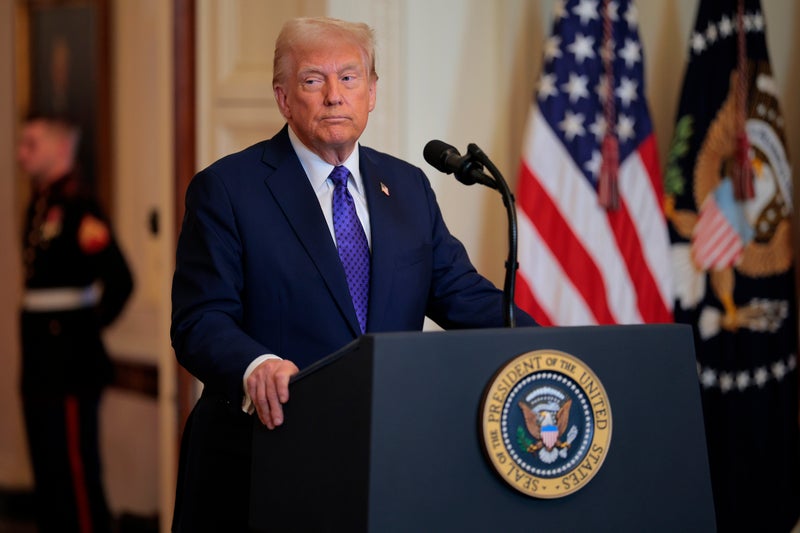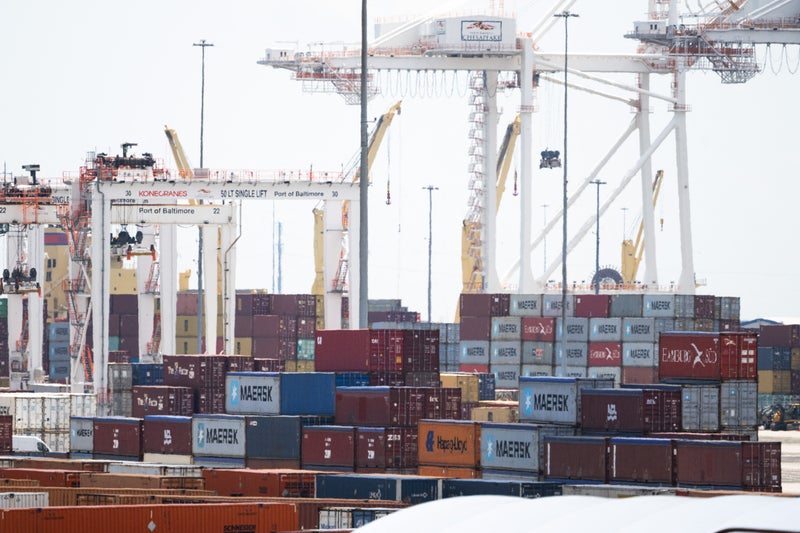What do China's new tariffs on U.S. mean for consumers
What do China's new tariffs on U.S. mean for consumers
Share:
The impact on U.S. consumers are likely to be limited so far, but experts warn of a looming ‘tit-for-tat trade war’. President Donald Trump announced tariffs on the U.S.’s three largest trading partners — while two countries have made agreements with Trump, the third imposed retaliatory levies. Trump signed an executive order imposing hefty tariffs on Mexico, Canada, and China. After talking to the leaders of Mexico and Canada, he agreed to suspend the tariffs for 30 days. China is a different story.
![[Smartphones, laptops and tablets are anticipated to increase in price, with tariffs impacting crucial metals and minerals used in the manufacturing of tech products.]](https://static.independent.co.uk/2025/01/23/10/de5094ff12d34ff59d0abe03af773cdeY29udGVudHNlYXJjaGFwaSwxNzM3NzE0ODY1-2.49330550.jpg)
China’s foreign ministry announced Tuesday it would impose 15 percent tariffs on coal and liquefied natural gas and 10 percent tariffs on oil, agricultural equipment and large-engine cars imported from the U.S. starting February 10. China retaliated after Trump’s 10 percent tariffs on the country went into effect Tuesday morning. Here’s how China’s new tariffs could impact U.S. consumers. China’s retaliatory tariffs are carefully calculated and may not largely impact the U.S. economy yet — but China may just be getting started, experts warned.
![[Trump is planning talks with China’s President Xi in the coming days as their “tit-for-tat” trade war escalates.]](https://static.independent.co.uk/2025/02/04/7/34/SEI237730986.jpeg)
For example, China’s tariffs on liquefied natural gas and oil imported from the U.S. may not have too much of an effect in the U.S. But the tariffs also announced export controls on five metals: tungsten, tellurium, bismuth, indium and molybdenum-related products. Other experts predicted an unstable market in the wake of the tariffs. "China announced an increase in tariffs on some imported goods from the United States, raising market concerns about a worsening trade war between China and the U.S.,” Kenny Ng of the Hong Kong-Based Brokerage China Everbright Securities International also told the outlet.
"In the short term, China and the U.S. will engage in consultations, and the related uncertainties may continue to trouble the market. However, as this factor gradually becomes clearer, I believe the investment market is likely to emerge from the shadow of the China-U.S. trade conflict,” Ng continued. In short, the “tit-for-tat” tariffs are likely to harm both countries. Inflation would also increase in both nations, the analysis predicted.
“A risk is that this is the beginning of a tit-for-tat trade war, which could result in lower GDP growth everywhere, higher U.S. inflation, a stronger dollar and upside pressure on U.S. interest rates,” Stephen Dover, chief market strategist and head of financial firm Franklin Templeton Institute, told the Associated Press. Trump is planning to talk with Chinese President Xi Jinping in the coming days.





















